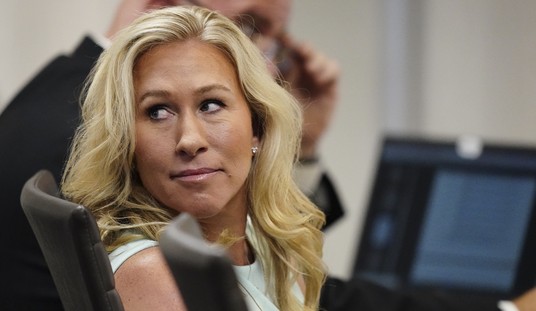Republican unity against raising tax rates for the wealthy began to show cracks on Wednesday after a conservative congressman said he would back an agreement with President Barack Obama to raise rates on the rich but extend tax cuts for income below $250,000.
With Congress scrambling to avert a series of tax increases and spending cuts due to kick in at the end of the year – known as the “fiscal cliff” – Representative Tom Cole said Republicans should approve a deal ensuring 98 percent of Americans do not suffer a tax increase that endangers the economic recovery…
“If we have an opportunity to, right now, secure the Bush tax cuts for 98 percent of the American people … and then continue to fight on these other issues, I think we should do that,” Cole, a conservative Republican from Oklahoma, told Reuters in an interview.
Speaker John Boehner (R-Ohio) on Wednesday shot down a proposal by a senior GOP lawmaker that the House agree to President Obama’s demand to extend middle-class tax rates as Republicans sought to put the focus of negotiations on spending.
The Speaker’s swift rejection of an idea floated by Rep. Tom Cole (R-Okla.), a respected party strategist and former chairman of the House GOP campaign committee, came as Republicans voiced increasing concerns that the debate over the so-called “fiscal cliff” had become dominated by talk of taxes rather than spending.
Comparing the nation’s spending crisis to a “freight train,” Boehner said “it’s time for the president and Democrats to get serious about the spending problem that our country has.”
As of Thursday, Congress has only 10 legislative days left before the cliff plunge, yet President Obama and House Speaker John Boehner (R-Ohio) haven’t met in 13 days, and reportedly haven’t spoken on the phone all week. Staff-level talks have produced little progress. Instead, both sides have embarked on a campaign of photo ops with business leaders and middle-class taxpayers aimed less at persuasion than at avoiding blame once the cliff — a combination of huge spending cuts and tax increases — is reached…
Eventually, any deal to restore the nation’s finances will have to look something like the Simpson-Bowles proposal, which combines tax increases and cuts to entitlement spending. There is no viable alternative to their core formula. Yet the threat of a crisis doesn’t seem to be enough to spur action; lawmakers are apparently content to wait for an actual crisis — and Simpson and Bowles are passing the time as scolds and jesters.
With a chip on his shoulder larger than his margin of victory, Barack Obama is approaching his second term by replicating the mistake of his first. Then his overreaching involved health care — expanding the entitlement state at the expense of economic growth. Now he seeks another surge of statism, enlarging the portion of gross domestic product grasped by government and dispensed by politics. The occasion is the misnamed “fiscal cliff,” the proper name for which is: the Democratic Party’s agenda.
For 40 years the party’s principal sources of energy and money — liberal activists, government-employees unions — have advocated expanding government’s domestic reach by raising taxes and contracting its foreign reach by cutting defense. Obama’s four years as one of the most liberal senators and his four presidential years indicate that he agrees. Like other occasionally numerate but prudently reticent liberals, he surely understands that the entitlement state he favors requires raising taxes on the cohort that has most of the nation’s money — the middle class.
Mitt Romney as candidate and others before and since have suggested increasing revenue by capping income tax deductions. This would increase that tax’s progressivity, without raising rates that would dampen incentives. Obama’s compromise may be: Let’s do both. Remember the story of when the British Admiralty sought six new battleships, the Treasury proposed four, so they compromised on eight.
Who actually has the leverage in negotiations over the fiscal cliff—and the extension of Bush-era income tax cuts in particular? On the surface, it might look like Democrats, who control the White House and the Senate, have the upper hand. But House Republicans may have more leverage than is immediately apparent…
We already have a pretty good clue to how the White House will act—not what the administration is saying now, but how it actually acted in 2010, the last time the Bush tax cuts were set to expire. Then, as now, doing nothing would have allowed tax rates to rise. And then, as now, the president insisted that he would not extend the Bush tax cuts for top earners. But he did anyway.
Asked at a press conference earlier this month why this time would be different, President Obama suggested that the economy was better this time around. In fact, it’s growing at the same pace. Which is to say that Obama didn’t have a very good answer, because this time isn’t all that different. And while a different outcome is possible, especially if the GOP follow’s Rep. Cole’s advice, it’s not the most likely scenario.
But there is a profound lack of curiosity when it comes to the other half of this supposed bargain. Remember that hypothetical deal of $1 in tax increases to $10 in spending cuts? Republicans are still being asked about it and criticized for rejecting it. But balancing the budget under that formula would require $9 trillion in spending cuts over the next ten years. When was the last time the president or a Democratic congressman was asked whether or not they would agree to such a deal?
For that matter, it’s worth noting that more than half of Democratic congressmen and eleven senators have signed a pledge to oppose any changes to Social Security or Medicare. If pledges are the root of all evil, couldn’t we pause for just a moment in our attempts to run Grover Norquist out of town to work up the tiniest bit of outrage about this one?
In fact, many Democrats actually want to spend more, at least in the short term. The president’s most recent budget calls for $2.6 in increased spending between now and 2022. That’s $1 trillion more than the $1.6 trillion that the president has called for in new taxes. Therefore, the tax hikes would not be used to reduce the deficit, but to finance new spending. And, according to news reports, the president has already floated the idea of still more stimulus spending as part of the fiscal-cliff talks.
Obama does in fact want to take the country over the cliff. It’s win-win-win-win-win.* He gets to raise taxes (including on the middle class, which he needs to pay for his welfare state), he gets some cuts to the the military he despises, he gets cuts for Medicare (not part of his coalition), he gets to blame the GOP for all of this, and, bonus, he gets to claim the coming recession he’s already engineered is the GOP’s fault, too.
The GOP is in a bad situation and will try to give the store away to avoid this. We shouldn’t. Let Obama have the economy he wants, and let him take responsibility for it, too.
Hennessey’s first point is probably true. Going over the fiscal cliff without a deal will probably result in a recession. But his second point may not be true. While a recession would be terrible for the country, it may not be terrible for the Obama presidency. Obama knows that he has the media standing by to blame Republicans for any failure to reach a deal, and he knows that there are enough low-information voters out there to believe whatever the media says. The media covered for him both on Benghazi and the fiscal cliff during the elections; it’s likely to keep covering for him. He also knows, based on his own re-election victory, that a terrible economy leads to more dependency on government, which leads to more people seeing him and his party as the guarantors of their government benefits. This dynamic is a very effective way to kill arguments favoring smaller government. Who needs abstractions and Milton Friedman when there’s no food on the table?
The co-chairman of President Barack Obama’s 2010 fiscal commission said it’s unlikely the president and Congress will reach a deal by the end of this year to avert the so-called fiscal cliff.
Erskine Bowles, also a former chief of staff to President Bill Clinton, estimated there is a one-third probability the sides will strike a deal by the end of this year. Speaking today at a breakfast in Washington sponsored by the Christian Science Monitor, he said there’s another one-third chance that all sides will reach a deal early in 2013.
“I’m really worried,” Bowles told reporters. “I believe the probability is we’re going over the cliff.”
Erskine Bowles on the Fiscal Cliff: ‘I’m Really Worried’ from The Christian Science Monitor on FORA.tv
Via the Daily Caller.







Join the conversation as a VIP Member